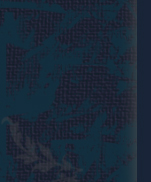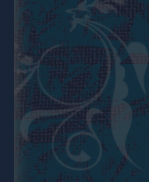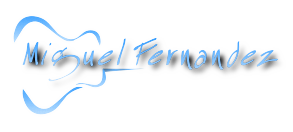















| Miguel Coelho Fernandez graduates in classical guitar at the Conservatory of Buenos Aires, studies the concert guitar with Spanish guitarist Consuelo Mallo Lopez, president of the Association Guitarrística Argentina. He studies flamenco guitar with Quique de Cordoba in Argentina and then in Spain with concert master Manolo Sanlucar, graduating in the Andalusian Flamenco, Jerez, at the International Flamenco Guitar.
- How was your contact with the music, how did you chose the guitar and what led you to the flamenco guitar? It began almost by chance, even though my father played and used to sing and play zambas and chacareras, and I usually played ratherly on guitar on this occasions , the real push was a Christmas gift made my godmother at 16, an electric guitar and an amplifier. From there I went to classical, without leaving the electric, but the reading of music and technique was a mandatory step to overcome traguardos. In a few years I graduated and started writing regularly bossanova, classic and was listening at a family friend’s house to the "Panaderos Flamencos" of Esteban de Sanlucar played by Paco de Lucia that Flamenco intrigued me so much in purity touch , that opened me a whole new horizon in my search. I started to attend flamenco guitar luthiers in Buenos Aires, with long conversations ,"guitarreando" and discussing the best way to achieve true flamenco color sound on a guitar that embellishes a ”falseta”. So I met Quique de Cordoba, who was a near friend of Paco de Lucia, he spent hours and hours playing the guitar. By then he was the only guitarist in Argentina, who knew the secrets faithfully of that alien technique and will teach with great altruism. - How was your experience of studying flamenco guitar legend such as Manolo Sanlucar Flamenco? Manolo is an extraordinary teacher. In some lessons prevails rhetoric to guitar, but there the student must also take advantage for their training. I remember one day advised: "if you study 5 hours a day guitar, concentrate on making 4 of technique and then the 5th dedicate yourself to play what you want." As to mean that we are not geniuses just because we are all day with guitar in hand. - What can you tell us your experience with Antonio Jero and Gerardo Nuñez? -To Antonio I came to know how he accompanies the “cante”, he and his brother Niño Jero very regularly accompanied Camarón de la Isla. In Jerez, have a very special guitar touch, and is the property only of them, very different than they do in other regions of Andalusia. I studied also with Gerardo, a person of great musical sensitivity, because without doubt represents one of the strongest references how it should evolve modern flamenco guitar today. It is one of the few guitarists, in my opinion, which has created a musical universe all his own, without having to copy to another. -You also studied jazz guitar in Boston and with James Tobias of the Guitar Institute of Technology in Los Angeles and compose flamenco, Brazilian and classical. What causes you to connect feelings with each of these rhythms? What do you think of flamenco fusion, what rhythms and beats itself cannot be merged with flamenco, what you mean by merging two rhythms? -I went to study Jazz because it gives you knowledge of improvisation that the conservatory does not teach you. Doing this when composing my music had a much broader language and ideas flowed alone, as a torrent. As a soloist with my Flamenco company, the music is all of my composition, and if we play something else I'll put mine flourishes. That's where one looks for the original idea of this merger with the other, but today the word fusion is so grounded in any musical style, to say "this is fusion" sounds even banal. As the Flamenco has its roots so severe, I mean on dancing, singing and guitar tradition when amalgamating some music, Latin, Arabic, pop, gypsy, etc.., air flamenco somewhere has to become evident. And this only happens when the performer or composer flamenco known good source. - Do you think your talent was recognized abroad and in Argentina, or was the fate that allowed you to travel and the opportunities presented to you that you are away from home? -I came to Italy advised by a friend who was already here and because the economic situation was more favorable then. I have to admit that the current global economic crisis in Europe is very strong and one of the first things that strikes are the festivals, concerts, cultural subsidies, etc.. and it's not like years ago. Here are more frenetic rhythms, are the number of situations that lead to live us this way ; while I compose for a new flamenco choreography, prepare another show for a tour of only Argentine tango and folklore dancers, because I can enrich my guitar search. Maybe that's what got me here, being able to do several things at once. -In your many contributions record, which has left branded and why? -I've almost finished the CD of a musical project that I love in particular. The album is called "Open Doors", is actually a duet with guest musicians and the group called Otras Tierras. There are flamenco, arab, world, chillout, etc.. I play flamenco guitar, charango, and even a milonga with a very special guitar built by argentine luthier Rodolfo Cucculelli on my idea, where I can run quarter-tone as and Arabic lute (oud). |
Photo: Temple of Concord-Agrigento-Valle dei Tempi, Sicily-Tour 2011 |
|
-You are currently based in Italy ? -Yes, I live just outside of Rome, a city of incredible beauty and history! - Are you coming to Argentina from time to time? - Yes! I deeply love my country. I always try to return, only to find a break of several weeks is not easy, especially for re do find family, friends, and that harmony and energy that only feeds my music there. - What are your dreams? -I'm finalizing the tracks for a CD only flamenco guitar. I will invite several guests, and above all must prevail so sought "Sonikete"! |
Interview by Laura Pauza, Luna del Olivar, november 2011. |